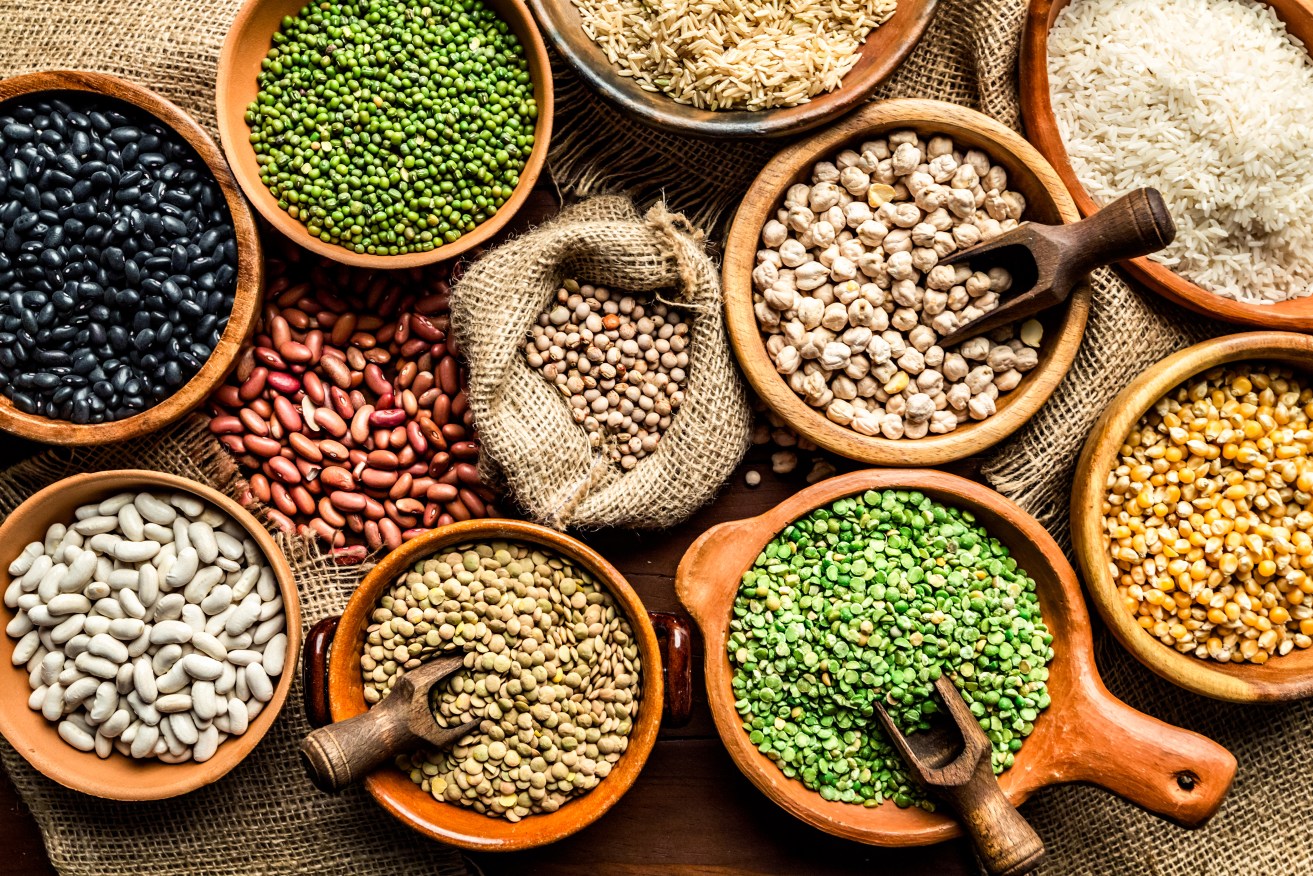Plant-based diet provides 39 per cent lower odds of COVID-19 infection, study claims


Legumes are great for the heart, nutritionally dense, and boost gut health. And maybe they protect against COVID-19. Photo: Getty
From the early days of the COVID-19 pandemic, scientists tried to understand a disease they hadn’t seen before.
Pretty soon some patterns emerged. Notably, it was apparent that people with obesity or type 2 diabetes were at higher risk of becoming severely ill with the virus.
These conditions tend to be driven by a poor-quality diet, heavy on the sugars and other highly-processed carbs.
Taking a step back, for a wider view, poor nutrition was a common feature among groups disproportionately affected by the pandemic.
This link between poor nutrition and poorer COVID-19 outcomes was especially apparent among people from lower socio-economic groups.
This raised an interesting question: If a poor-quality diet put you at higher risk of catching COVID-19 and suffering severe illness, could a high-quality healthy diet offer protection against the virus?
Why not?
Healthy diets, particularly those with a higher intake of vegetables, including legumes, and a lower intake of saturated fat, are protective against heart disease, cancer and chronic diseases such as type 2 diabetes.
Why not against COVID-19?
A 2021 study from King’s College London and Harvard University found that people who eat “a high-quality, gut-friendly diet are less likely to develop COVID-19 or become severely ill”.
The researchers also confirmed that people who ate poorer-quality diets “are more at risk”. This was especially if they lived in a more socioeconomically deprived area.
People with the highest-quality diet were about 10 per cent less likely to develop COVID-19 than those with the lowest-quality diet, and 40 per cent less likely to fall severely ill.
The researchers also found “a synergistic relationship between poor diet and increased socioeconomic deprivation with COVID-19 risk that was higher than the sum of the risk associated with each factor alone”.
In their modelling, the researchers concluded that “nearly a third of COVID-19 cases would have been prevented if one of two exposures – diet or deprivation – were not present”.
In other words, if you could materially improve the lot of people living in lower socioeconomic conditions – help them become richer – their odds of a better COVID-19 outcome would significantly improve.
Improving the diet of poorer people would get the same result.
Sadly, the political will and means to achieve these goals simply isn’t there.
A 2021 study from Stamford Hospital, Greenwich, had similar findings.
A Conversation piece was critical of the methodology of the Greenwich study, reliant as it was on self-reporting and a narrow scope of investigation.
More studies were called for.
The new study
A predominantly plant-based or vegetarian diet is linked to 39 per cent lower odds of COVID-19 infection, according to new research from the Universidade de Sao Paulo, Brazil.
The findings “suggest that a diet high in vegetables, legumes and nuts, and low in dairy products and meat may help to ward off the infection”.
This was a small study of 702 participants recruited between March and July 2022. This was when mass vaccinations were first in play.
Participants detailed their “usual eating patterns and food group frequency”, their lifestyle and medical history, including vaccinations.
They were then divided into either omnivorous (eat anything) or predominantly plant-based dietary groups.
The plant-based food group was divided into flexitarians – and vegetarians and vegans. Flexitarians ate meat three or fewer times a week.
There were no significant differences in sex, age, or vaccination uptake between the omnivores and plant-based groups.
But a significantly higher number of people had been educated to postgraduate degree level in the latter.
So again, socioeconomic status played a role here.
The results
The omnivores reported a higher rate of medical conditions and lower rates of physical activity.
And the prevalence of overweight and obesity was significantly higher among the omnivores.
About half the study group contracted COVID-19.
In all, 330 people said they had had COVID-19 infection. Of these, about a third of the participants had mild symptoms. And 15 per cent had moderate to severe symptoms.
The omnivores had a significantly higher reported incidence of COVID-19: 52 per cent versus 40 per cent.
Omnivores were more likely to have had moderate to severe infection. Specifically, 18 per cent versus just over 11 per cent.
There was no difference in how long symptoms lasted.
The authors suggest that predominantly plant-based diets provide more nutrients that boost the immune system. This means they help to fight viral infections.
“Plant-based dietary patterns are rich in antioxidants, phytosterols and polyphenols,” they write.
All of which “positively affect several cell types implicated in the immune function: These cells exhibit direct antiviral properties.”
This was an observational study, and can’t establish causal factors.








